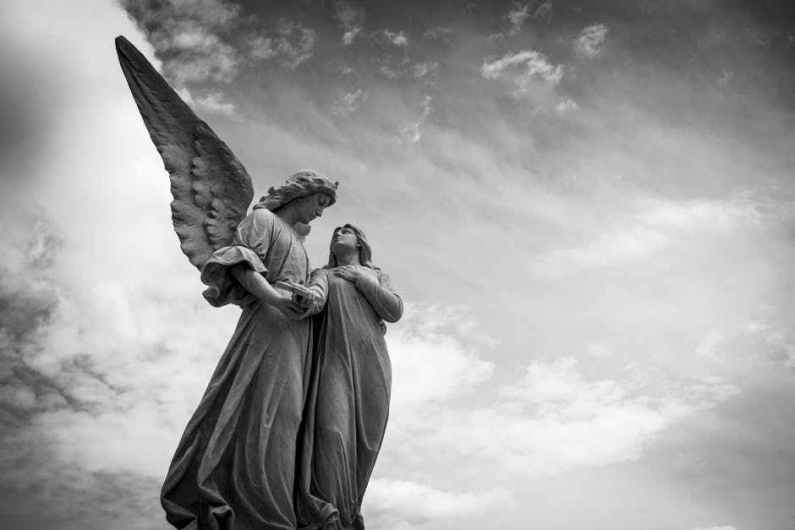
Are Angels in the Image of God?
A pastor in Canada recently emailed me to ask: “Why are human beings described as being made in God’s image yet angels are not? What is it that makes humans Image-bearers as opposed to angels?” Good question.
Are angels, too, in the image of God? And if they’re not, how do we as humans differ from them specifically with respect to the image of God (imago Dei)? What qualities or capacities do we have that they don’t?
It’s surprising that such an obvious question receives no attention in many of the theological dictionaries and systematic theologies. Among theologians that do discuss it, some assume that angels are created in God’s image just as humanity is; defining imago Dei as intellect, emotion, will, and spirituality would naturally lead to that assumption. Others, however, assert that the idea of angelic imago Dei has no basis in biblical revelation.
Calvin concluded from Matt 22:30 that angels were created in God’s image. Calvinist theologian Louis Berkhof (ST, 206-07) disputes that view. He argues that the imago Dei includes not only moral and intellectual capacities, but also our assignment of dominion and our possession of a body. Berkhof understands, of course, that God inherently possesses no physicality (though Christ assumed it via the incarnation). But he sees an inextricable connection between body and soul, and even between our body and our exercise of dominion. So he includes in his conception of the imago Dei the human body “not as a material substance, but as the fit organ of the soul, sharing its immortality, and as the instrument through which man can exercise dominion over the lower creation.” (That introduces a surprising and intriguing perspective on the whole concept of anthropomorphism that I may explore in a future post.) When it comes to the role of dominion itself, theologians disagree over whether Gen 1:26-27 imply that dominion is properly a dimension of the imago Dei or simply a natural and necessary result of it.
In my view, angels do not bear the imago Dei. God’s own record of his creation of humanity makes a point of noting that he intentionally created them “in the image of God” (Gen 1:26-27). Scripture repeats that specific link between humanity and God on several occasions (Gen 5:1; Gen 9:6; 1 Cor 11:7; Jam 3:9), but never once makes any such connection between God and angels. Beyond that, Scripture implies in multiple ways that man is uniquely special to God in ways that angels are not. (One of the most remarkable statements of that is Heb 2:16.)
But putting one’s finger on the precise difference(s) between humans and angels with respect to the imago Dei is tricky for two reasons: (1) the Bible really never fully explains exactly what imago Dei means; and (2) we’re not told a lot about angels either, at least in respect to their creation and nature. We are, however, told of several different classes and kinds of angelic creatures: cherubim (Gen 3:24), seraphim (Isa 6:2), and different kinds of “living creatures” (Ezek 1:5; Rev 4:6). That also suggests a distinction from humanity, which shares a single basic form and appearance and which is always depicted as a single class with a single, shared nature.
If we accept that Scripture at least implies that humans are uniquely in the imago Dei in a way that angels are not, we’re admittedly left with some degree of speculation when it comes to explaining the difference(s) between us and them. It’s clear that angels, like us, possess faculties of intellect, emotion, volition, morality, and spirituality; these are certainly aspects of the divine image, since they differentiate us (like God) from animals and the rest of creation. Beyond that, however, some additional features that we have no biblical reason to assume angels share include dominion, creativity, and relationality. Rather than locating the imago Dei in any one or few of these, I suspect it is rather located in the combined complex of all of these qualities, though there may well also be others that could be included in that complex of attributes that make us uniquely like God. (Again, whether our body can be included in some sense as part of the imago Dei, as Berkhof argues, lays some groundwork for a future post. Teaser: Does the common notion of anthropomorphism argue too much?)
It is humanity’s common sharing in the image of God that is the ground of our obligation to recognize, uphold, and defend the life and sacred dignity of all people, within the dictates of the Creator. It is the implied logical ground for the golden rule (Matt 7:11-12links our behavior to our Father’s behavior). It is why it is evil both to murder and to fail to execute the murderer (Gen 9:6). And it is why it is evil even to demean or abuse a fellow human (Jam 3:9). Exercising dominion in the imago Dei is a unique privilege that carries unique responsibility. It actually entails acting like God.

